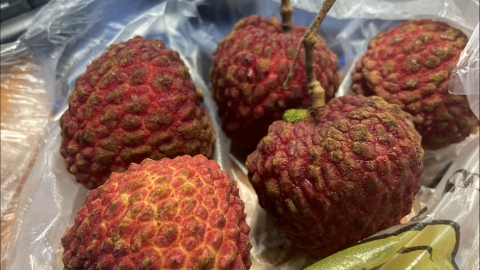Can patients with jaundice hepatitis eat lychee?
Generally speaking, patients with jaundice hepatitis can eat lychee, but it is not recommended to consume it in large amounts. Detailed explanation is as follows:

Lychee is rich in various nutrients such as vitamin C, glucose, protein, etc. Vitamin C has antioxidant properties, which can help enhance immune function, promote the repair and regeneration of liver cells, and benefit the recovery of livers damaged by jaundice hepatitis. Glucose can quickly replenish energy consumed by illness, improving physical weakness, while protein is an essential component of human cells and tissues, helping maintain normal liver physiological functions. Additionally, lychee also contains abundant dietary fiber such as pectin, which can promote intestinal motility, prevent constipation caused by reduced physical activity, help eliminate toxins from the body, and reduce the burden on the liver.
However, patients with jaundice hepatitis should consume lychee in moderation. Lychee contains high levels of sugar, excessive consumption may lead to blood sugar fluctuations, and its warm nature may easily cause excessive internal heat, worsening physical discomfort. It is generally recommended to consume no more than 10 lychees per day, preferably between meals, to avoid affecting normal eating patterns and blood sugar stability.









